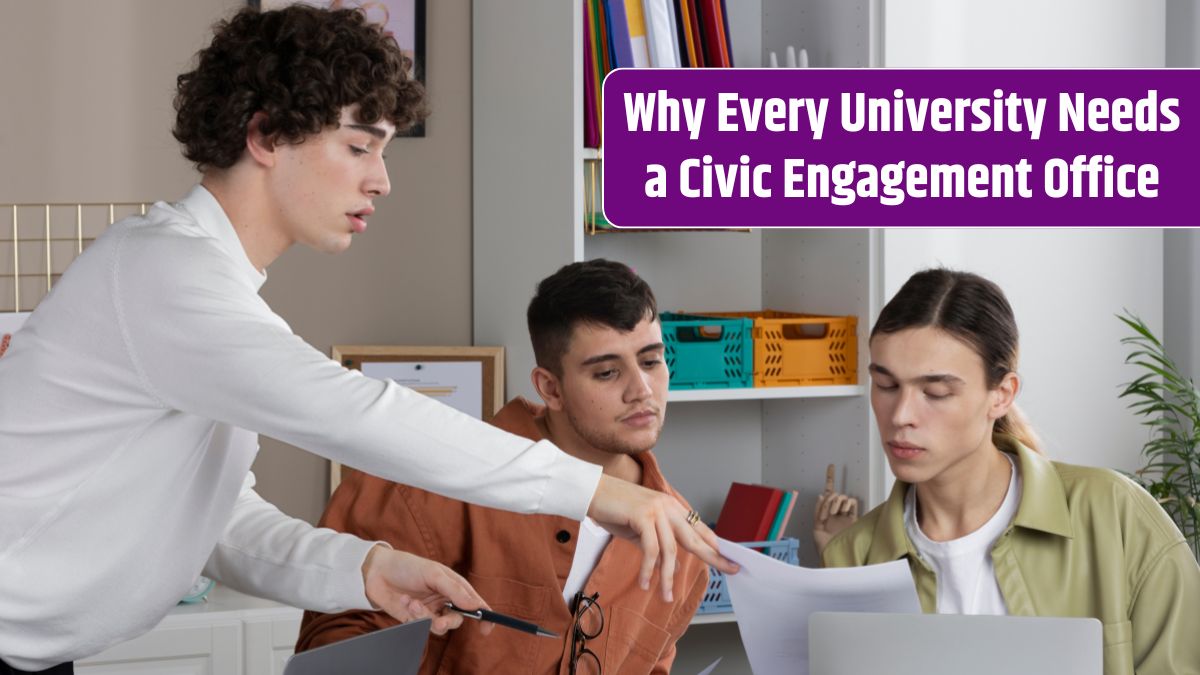College isn’t just about acing exams and writing papers—it’s also about growing as a person and preparing for the real world. One of the best ways to do that? Volunteering. It might not come with grades or credits, but it adds serious value to your education, helps you lead better, and puts your career on the fast track.
Let’s break down how volunteering during college can shape your future in ways you didn’t expect.
Table of Contents
Learning
Believe it or not, some of your most powerful learning experiences might happen outside the classroom. Volunteering connects what you’re studying to the real world. Whether you’re tutoring kids, helping with environmental projects, or working at a food bank, you’re applying your knowledge in practical ways.
This hands-on learning sticks with you. Why? Because you’re not just memorizing facts—you’re seeing how they apply in real life. It’s experiential learning, and studies show it deepens knowing far more than passive study.
For example, a psychology student volunteering at a mental health clinic will grasp theories much better than by just reading about them. You’re learning by doing.
Leadership
Volunteering gives you a chance to lead, even without a title. You may find yourself organizing a campus blood drive, mentoring underclassmen, or running a nonprofit’s social media campaign. These are real leadership opportunities that help you build initiative, responsibility, and decision-making.
Leadership isn’t about power—it’s about impact. Through volunteering, you learn how to influence others, communicate a vision, and guide a team—all while supporting a cause.
And guess what? Employers love leadership experience, especially when it’s backed by real results.
Development
Volunteering helps shape who you are. You develop empathy by working with people from different backgrounds. You gain confidence by tackling real-world challenges. And you learn resilience by overcoming obstacles in unfamiliar situations.
All of this personal development makes you more adaptable and self-aware. That’s gold in today’s fast-changing job market.
Plus, volunteering allows you to test different career paths. Not sure if you want to go into education, healthcare, or nonprofit work? Try them out through service and see what clicks.
Networking
Here’s a little-known secret: volunteering is also networking in disguise.
You’ll meet professionals, community leaders, and other motivated students. Some of these people might offer mentorship, letters of recommendation, or even job leads. It’s not just about who you know—it’s about who’s seen what you can do.
Unlike a job fair or resume, volunteering shows your work ethic and attitude in action. That kind of impression is hard to beat.
Employability
Volunteering builds the kind of skills employers are begging for—communication, problem-solving, teamwork, adaptability, and emotional intelligence. These are called “soft skills,” but there’s nothing soft about how valuable they are.
Check out this quick overview:
| Skill Gained | How Volunteering Builds It |
|---|---|
| Communication | Interacting with people in diverse settings |
| Teamwork | Collaborating on group projects and tasks |
| Initiative | Taking charge without being told |
| Problem-Solving | Handling unexpected issues in real-time |
| Emotional Intelligence | Knowing and relating to others |
When you add service work to your resume, it tells a story—one that shows you’re more than just grades on a page. You’ve made a difference, gained experience, and taken action.
Reflection
Volunteering also helps you reflect on your values and goals. What do you care about? What type of work fulfills you? These are big questions, and service can help you find the answers.
It gives you clarity—and confidence—about the kind of career and life you want to build.
So if you’re in college and wondering whether volunteering is worth your time, the answer is a massive yes. It teaches, it shapes, and it opens doors. It’s one of the best decisions you can make to grow your skills, your character, and your future.
FAQs
How does volunteering help learning?
It connects classroom knowledge to real-world situations.
Can volunteering improve leadership skills?
Yes, it gives you chances to lead teams and manage projects.
Is volunteering good for career development?
Absolutely—it builds soft skills employers highly value.
Can volunteering lead to job opportunities?
Yes, it expands your network and shows your abilities.
Does volunteering help with self-growth?
Yes, it boosts confidence, empathy, and resilience.























